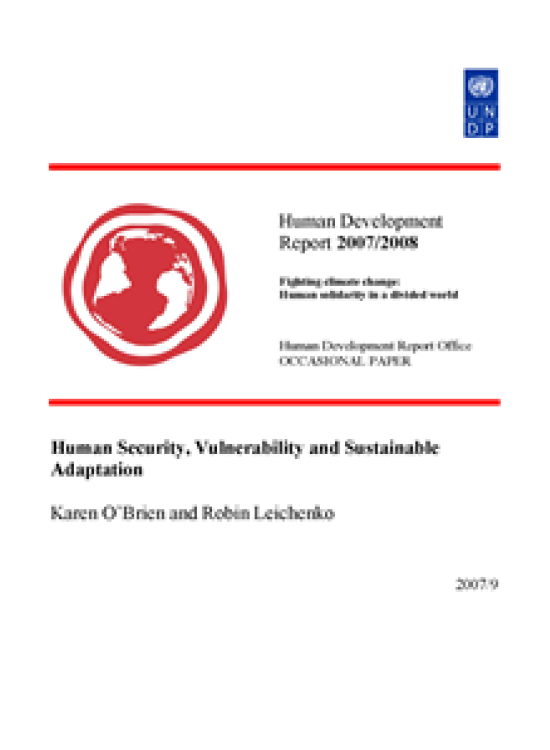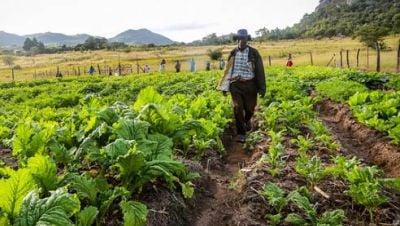Human Security, Vulnerability and Sustainable Adaptation

Download Report by Language
Document
obrienkarenandleichenkorobin.pdf
(251.62 KB)
Citation
O'Brien, Karen, Leichenko, Robin. 2008. Human Security, Vulnerability and Sustainable Adaptation. New York.
Human Security, Vulnerability and Sustainable Adaptation
Posted on: January 01, 2008
Four assessments carried out by the Intergovernmental Panel on Climate Change (IPCC) over the past 15 years have contributed to a growing consensus among the scientific community that humans are influencing the global climate system. These assessments confirm that climate change is contributing to dramatic transformations of the biophysical environment that will affect human settlements, ecosystem services, water resources, and food production, among other things. These transformations are likely to have widespread implications for individuals, communities, regions, and nations. Although there is considerable uncertainty about the future trajectory of climate change, related in part to the amount and rate of greenhouse gas emissions, the consequences of climate change represent an unprecedented threat to human security. Human security is closely linked to the development of human capabilities in the face of change and uncertainty. Individuals and communities faced with both rapid change and increasing uncertainty are challenged to respond to climate change in new ways that protect their social, environmental, and human rights, and that empower them to respond through both mitigation and adaptation. Surprisingly, the issue of climate change has been widely discussed and debated among scientists and policymakers as an environmental issue, rather than as human security issue. Current discourses on climate change draw attention to growing bodies of research on biophysical changes to the earth system, as well as on the economics and politics of climate change management. Although the climate change vulnerability literature has emphasized differential exposure, sensitivities, and adaptive capacities, as well as the concept of social vulnerability, there has been relatively little attention to the implications of differential outcomes and changing vulnerabilities for human security.

